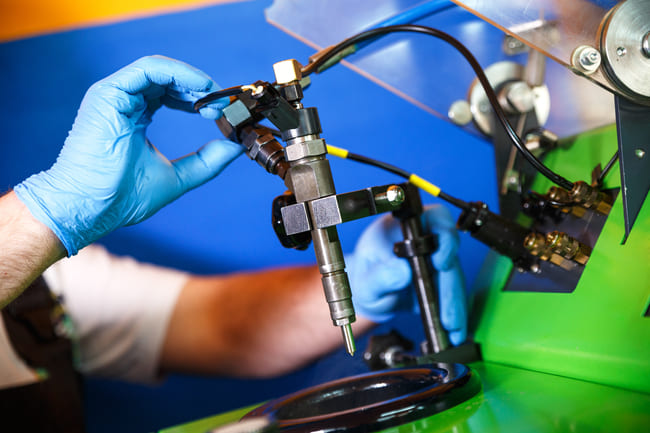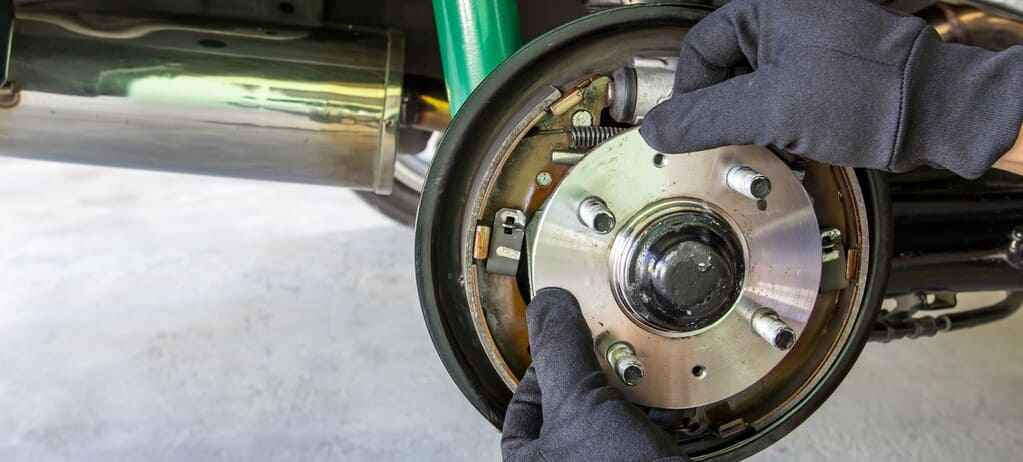Diesel engines have been around for a long time and these power units have evolved over time. In the meantime, they are highly complex systems and modern injection technology. Diesel fuel is special in that it is self-igniting under certain easily achievable conditions. The most modern version of these units is so-called common rail engines. In common parlance, the injection system used for this is called common rail injection or accumulator injection. In principle, this technology separates the generation of the necessary high injection pressure from the actual injection process. This permits the use of modern injectors for diesel vehicles to control injection. This, in turn, is a great advantage, because both the injection timing and the amount of fuel injected can be easily and precisely controlled electronically. The individual valves are controlled one after the other. Therefore, to let your engine to run particularly smoothly, the common rail injection system allows so-called pre-injection and even the main injection can take place in two steps. Therefore less soot is deposited in the engine and NOx emissions are reduced by the SCR catalytic converter. The predecessor of this technology was engines with so-called pre-chambers. However, these consumed significantly more fuel, generated more vibrations, had a higher noise level, and also caused the so-called free-burning of the soot particle filter.

Bad diesel injector symptoms
There is a whole range of symptoms that can be traced back to a defect in the injectors. A diagnosis of your car based on the colour of the exhaust gas can also help you out. For example, injection system problems can cause blue smoke to be emitted during engine start-up. Also, a strong black colouration of your engine exhaust gases may be due to defective, clogged, or leaking injectors. In general, an irregular engine run, misfiring, loss of power, increase in fuel consumption, a loud cylinder knock, engine overheating, fuel smell in the interior (injectors leaking) as well as the engine control light are classic symptoms of an injector failure. If you notice these symptoms, you should not drive your car, otherwise, consequential damage can result from these defects, which can be very expensive. This includes catalytic converter damage and piston defects. Therefore, to prevent this from happening in the first place, you should not only carry out regular check-ups but also stick to all maintenance intervals. This includes not only regular oil changes but also the regular replacement of spark plugs in petrol-driven engines. If there are leaks inside the injectors, the return flow rate may be too high. It can also happen that the injector return flow rate is too low due to blockages. You can also purchase a special grease for the installation and removal of your injectors which makes it easier for you to install new or repaired components.

Prevention
Particularly for vehicles with a diesel engine, make sure that you observe the change intervals for the petrol or diesel fuel filter, and never significantly exceed them. If you disregard this, impurities will penetrate your high-performance fuel pump. This also includes water, which can be dissolved in the fuel or enter from the outside when refuelling. The impurities prevent optimal lubrication of the fuel pump (which is lubricated by the diesel itself) and can clog your injectors and water can also lead to corrosion there. Remember, prevention is worth a pound of cure, as the cost of replacing an injector can run you about £150 and up.
Conclusion
Now you know the functions as well as the structure of your diesel and gasoline fuel injectors and have found out how to test your injectors. If you now pay close attention to the symptoms of defective injectors, you will have large parts of your engine fuel supply under control. In addition to a regular oil change, you should also pay close attention to all other change intervals for engine care and make sure to clean your injectors with diesel fuel injector cleaner regularly or have them cleaned. This is optimum protection from malfunction or even a total failure of these important vehicle components.
TOP products on the subject:







































